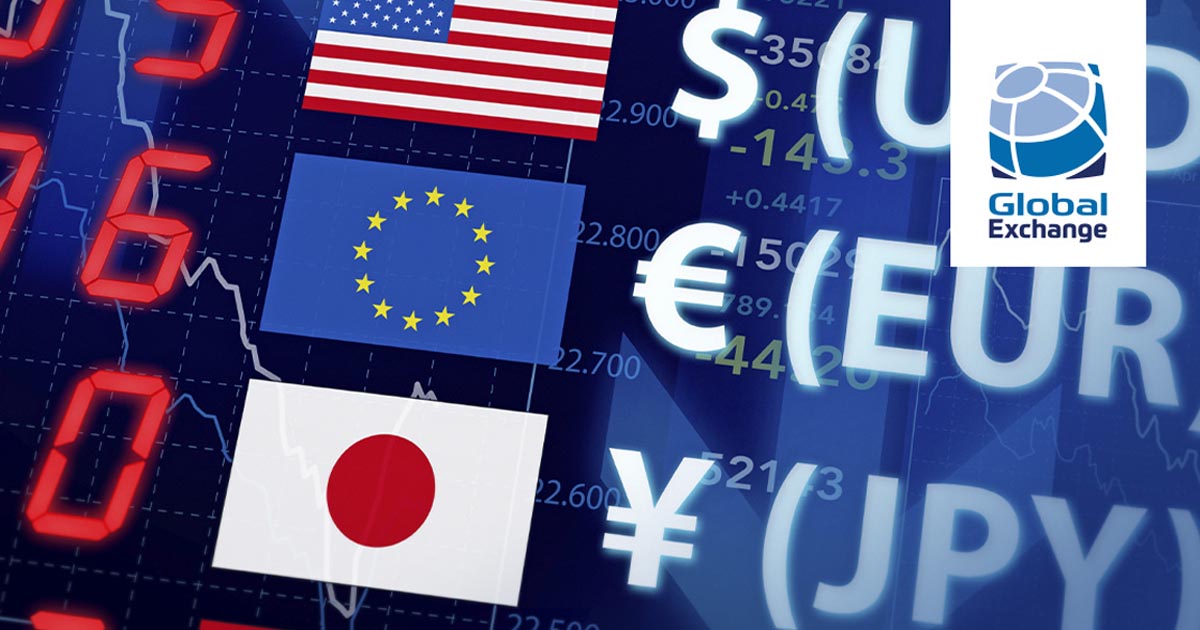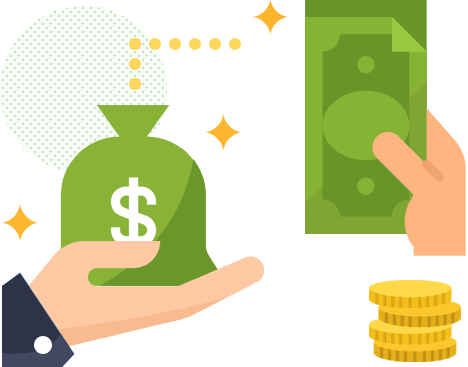Top 10 Tips For Currency Conversion Fees And Rates
The cost of currency conversion is increasing in importance in a globalized world. They can be an important element for any financial transaction whether it's for a trip abroad, conducting business overseas, or managing foreign currency investments. The fees are varying based on the currency, the conversion method used and the provider. Knowing these costs can help you to save money and make informed choices. Below are the top 10 specific tips for converting currency charges that can benefit travelers, businesses, and investors alike.
1. What are the types of conversion charges?
Currency conversion fees are available in various types. For instance, they are expressed as service fees or transaction charges. The transaction fee is a predetermined amount for each transaction. However, service costs could be expressed in terms of a percentage. Exchange rate markups happen when the service provider provides rates that are less favorable than those of the market. Becoming familiar with these types of fees will help you identify the most cost-effective options to meet your needs.
2. Compare rates from multiple providers
Comparison of rates among different providers is important before exchanging currencies. Currency exchange kiosks and banks and also online platforms might offer different exchange and fees rates. You can compare rates and charges in real-time by using tools for currency conversion. This can help you to find the best price and help you save money, particularly if you are exchanging huge quantities.
3. Look for exchange services that do not charge charges for fees
Certain banks and financial institutions have accounts that allow for free currency exchange, or lower fees for certain transactions. Fintech companies and online banks like them, typically provide currency conversion at no cost to account holders. Consider opening an account with one of these organizations especially if you are regularly dealing in foreign currencies.
4. Be aware of dynamic exchange rates (DCC) fees
If you are using your debit or credit card in another country, you could be offered the possibility to make payments in your currency by using a program called Dynamic Currency Conversion. Although this may appear appealing, you'll usually be charged more for conversion and pay less favorable exchange rates. Pay in local currency whenever you can, to avoid extra fees and get the best rate.
5. Make sure that your credit card does not charge foreign transaction fee
Credit cards that do not charge charges for foreign transactions are a fantastic way to save money when traveling. A lot of travel-oriented credit cards provide this advantage, allowing the purchase of items in foreign countries without incurring additional fees. Choose a card that meets your requirements and also has a favorable exchange rate. This will allow you to minimize expenses while traveling.
6. Consider Using ATMs for withdrawal of currency
The exchange rate is often higher at ATMs than currency exchange booths. Be aware of any fees that may be due to both your bank as well as the ATM operator. If you want to cut costs, you should use ATMs that are associated with your bank. You can also withdraw cash using local currency, and avoid conversion fees.
7. Plan Currency Conversions to Advance
Avoid exchanges that occur late at night near tourist sites or airports since fees are often high. You should plan your exchange ahead to receive better rates and lower charges. If you want to cut costs on your costs for travel, think about exchanging small amounts of currency prior to departure. However, it is recommended to consider changing greater amounts at more advantageous rates once you arrive.
8. Track the rate of exchange trends
By keeping an eye on the exchange rate trend, you will know the most suitable time to make a the conversion of currency. Fluctuations in exchange rates can result in varying charges and expenses and therefore monitoring these changes will help you plan your conversions strategically. Make use of information from financial news and historical data as a guide to make your decisions.
9. Take into consideration hidden costs in transactions
Be aware of any hidden fees. In this category are charges for service, fees to keep foreign currency accounts, and exchange rates that aren't favorable. You should always be sure to read the fine print and ask questions in order to fully comprehend the charges that are associated with conversion of currency. This can help you avoid unanticipated charges and allow you to make better financial decision-making.
10. Consult Financial Experts for Large Transactions
Contact a financial expert if you are dealing with massive transactions or complicated exchanges of currency. Experts in currency know the most efficient ways to cut down on conversion costs and optimize your transactions. This is crucial for international trade or for investors who want to manage their currency risk effectively.
These detailed tips can help you better understand currency conversion fees. They can be useful to those who travel in business overseas, or overseeing investments. Knowing the costs of conversion allows you to make more informed financial decisions, aligned with your business or personal goals. This ultimately will reduce your expenses and boost your financial plan. Read the most popular over at this website on AUD to USD for website recommendations including pesos to dollars, currency converter, usd to pound sterling, dollar to rupee, usd to colombian peso, usd to japanese yen, php to usd, aed to usd, canadian dollar to usd, chf to usd and more.

Top 10 Tips On Security And Reliability In Terms Of Rates For Exchange Of Currencies And Rates
In a world that is becoming increasingly interconnected the importance of security and reliability for travellers or investors as well as businesspeople is not overstated. If you're in foreign countries, conducting international trade or investing in international markets, knowing the security measures and reliability of various systems is crucial for protecting your investments and ensuring smooth operations. From protecting personal information to ensuring you have reliable financial partners, being aware of security procedures can help reduce risks and enhance the overall quality of your experience. Here are ten strategies to ensure security and ensure the safety of your financial activity.
1. Find out about your destination's Safety Standards
Examine the safety requirements of your destination and its security situation before traveling. Learn about crime rates and the stability of the political system. Websites like the U.S. Department of State or travel advisors can give you useful information on safety concerns. If you know what to anticipate, you will be able to make an informed decision about the best places to stay and be able to navigate the surroundings in a safe manner.
2. Utilize Secure Payment Methods
Choose secure payment methods when conducting transactions, particularly abroad. Credit cards typically offer better security against fraud compared to debit cards. Additionally, many have additional security features like chips and alerts for fraud. It is also possible to utilize mobile payment services as well as digital wallets to protect your personal information.
3. Implement Strong passwords, as well as Two-Factor Authentication
If available, you should enable the two-factor authentication (copyright) for online banking and investment accounts. This adds an extra layer of security by requiring a second form of verification that includes a text message or authentication software, in addition to your password. Make sure to change your passwords regularly and avoid sharing your passwords with anyone else to protect account security.
4. Make sure your devices are secure
When travelling, make sure your electronic devices are protected. To protect yourself from the unauthorized access of your devices, you should use password protection, PINs, biometric locks and other measures to protect yourself. Wireless networks that are public can be vulnerable to hacker attacks therefore, avoid using them for transactions that are sensitive. Instead, think about using a virtual private network (VPN) to protect your internet connection and safeguard your personal information while you are online.
5. Beware of scams using phishing
Scams of this nature are very common in today's digital age. They could target companies or travelers, as well as investors. Be aware when you click on links found in emails and messages from unknown origins. Make sure you verify the legitimacy of a request prior to giving out personal or financial data. You can spot and beware of scams by becoming acquainted with the most common phishing techniques.
6. Choose Reliable Service providers
If you're looking to choose a hotel, financial institution or investment platform, you should consider the reliability of the company by reading reviews and ratings. Be sure to look for establishments that have a good an excellent reputation for customer service as well as security. Check if they're regulated. This can assure you of their credibility and conformity with industry standards.
7. Make sure you regularly monitor your financial accounts
– Keep a close watch over your accounts' financial records for any suspicious or unauthorised activity. Set up account alerts which notify you of significant transactions and withdrawals or any changes to your account settings. Regular monitoring will allow you to spot fraud before it happens and also take steps to safeguard your account.
8. Learn about the Insurance Options
Travelers should be aware of their insurance options to be able to be confident and secure on their travels. Take into consideration policies that offer coverage for cancellations of trips, lost or stolen property, and medical emergency situations. To reduce financial risks, businesses and investors should look into insurance policies that cover cyber threats, liability and loss of assets.
9. Stay up-to-date on compliance requirements of regulatory agencies.
For security while conducting business or investing internationally it is essential to be informed of the laws. Different countries have differing laws when it comes data protection and financial transactions. It is crucial to familiarize yourself and your business with these rules in order for you to avoid any legal issues.
10. Continue your education
– Security threats and technological advances are constantly evolving. Be a part of ongoing training by attending webinars, workshops or training sessions focused on the best security practices. You can enhance your travel security and security by keeping up-to-date with the latest security threats.
With these practical tips with these practical tips, you'll be able to more effectively handle the pressures of travelling as well as running a business and monitoring investments. You will be able to make better choices by understanding the importance of security and selecting reliable partners. Whether you’re planning a trip to another country, expanding abroad for your company or directing investment making, placing security and reliability first will minimize risks and allow you to achieve success. View the recommended CZK to EUR for site advice including usd to mxn, eur to usd, dollar to rmb, euro to dollar conversion, swiss franc to usd, pesos to usd, usd to euro exchange rate, usd jpy, usd to chinese yuan, mexican peso to usd and more.


